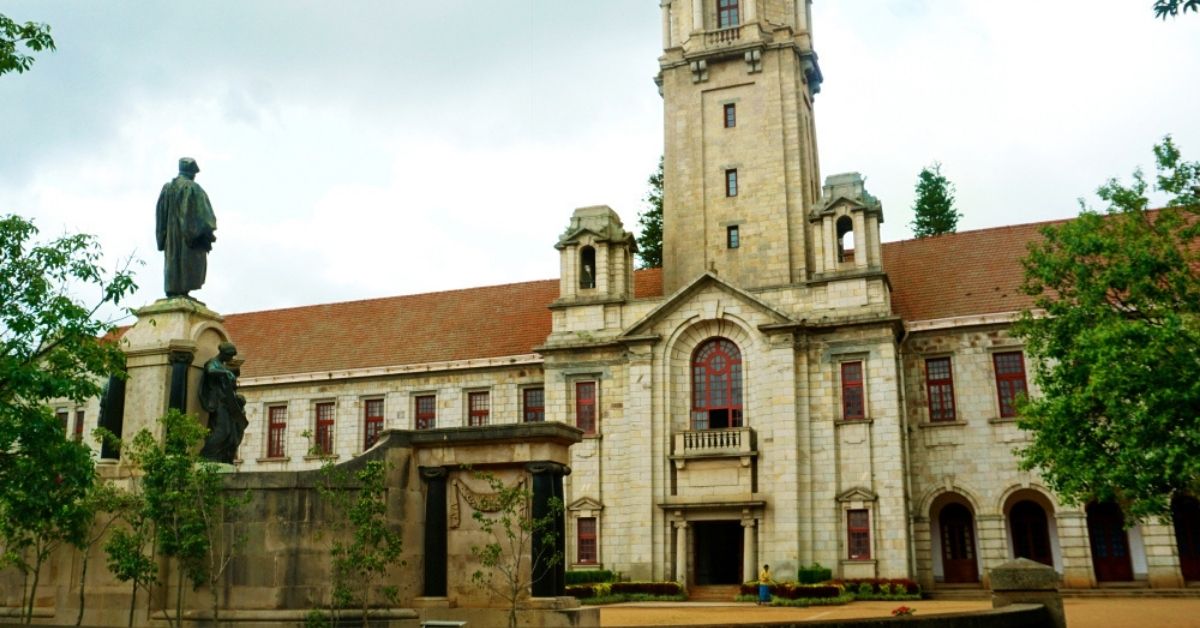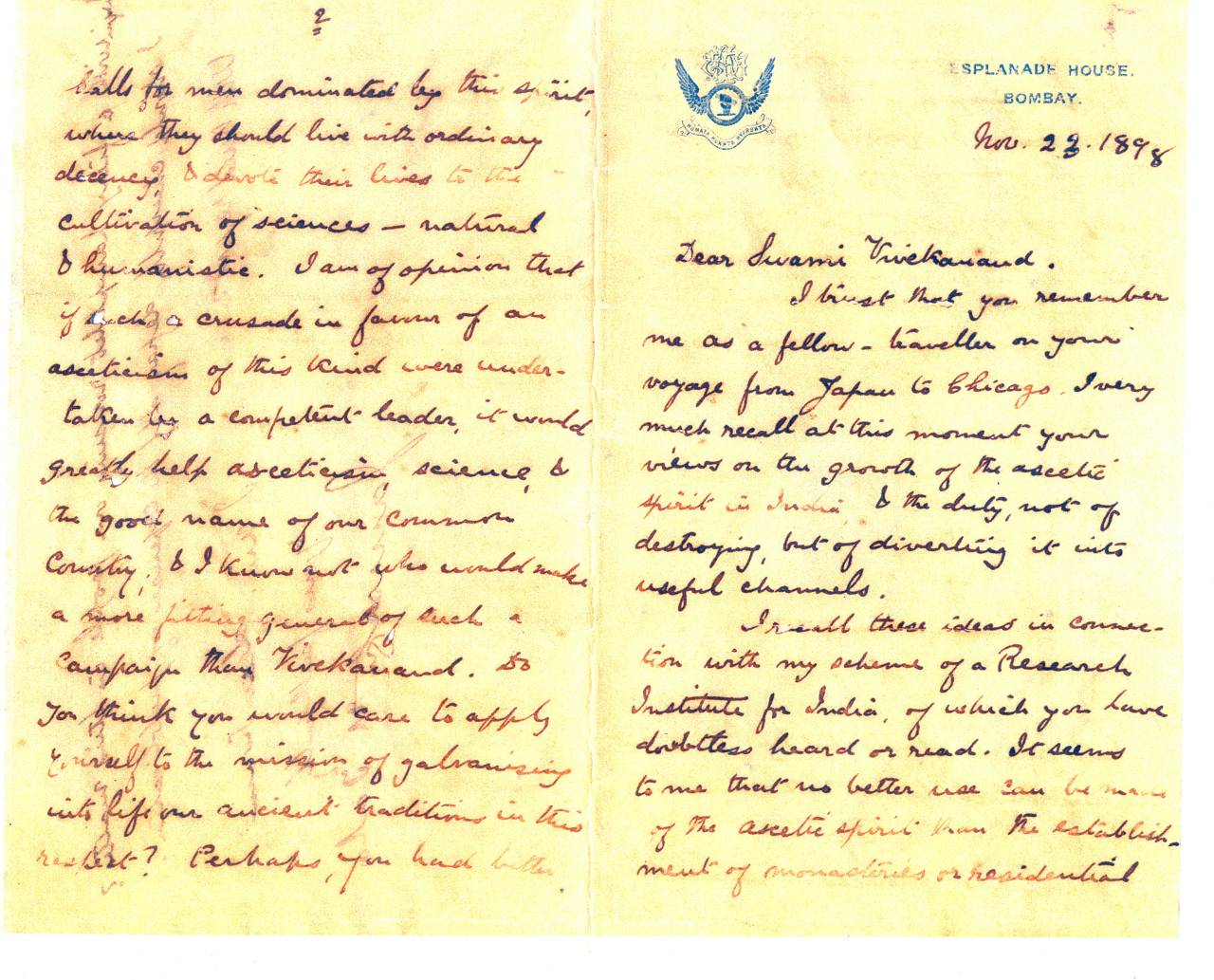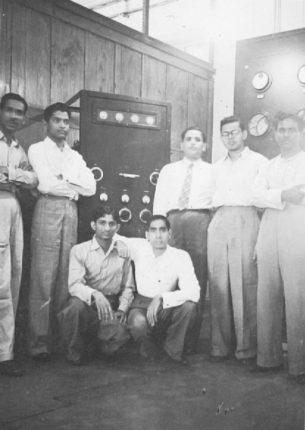Born 112 Years Ago, 5 Ways The Indian Institute of Science is Saving Lives Even Today
The Indian Institute of Science (IISc) Bengaluru was established on 27 May 1909 by Jamsetji Nusserwanji Tata. In 112 years the institute has conducted cutting-edge research in various scientific fields and provided innovative solutions.

The Indian Institute of Science (IISc) story is intimately linked with the evolution of research, higher education, science, and technology in India. From establishing sandalwood oil and soap factories to training military personnel, manufacturing goods, repairing warplanes, and finding solutions for Covid-related ailments – the organisation has maintained a reputation for cutting-edge research and development for a solid 112 years now.
And its birth is just as formidable as its research. The venerable institution was set up by none other than legendary industrialist and founder of the Tata group – Jamsetji Nusserwanji Tata.
In the early 1890s, the idea to launch this institution was thought of by Jamsetji, reportedly encouraged by a conversation with Swami Vivekananda. By 1898, Jamsetji actively was on the lookout for a suitable place for such an institution. He met and discussed his idea with Sheshadri Iyer, the Diwan of Mysore.
The two of them convinced the then-ruler of Mysore, Krishnaraja Wodeyar IV, to donate roughly 372 acres of land in the heart of then-Bangalore, and provide other necessary facilities. And thus, a legend in India’s research capabilities was born on 27 May 1909.
Research during early days
The institute’s first director was an English Chemist named Morris Travers. With only two academic departments — electrical technology and general & applied chemistry, and 24 students, the institute carried out studies of immediate importance to the country.
Early research conducted by IISc led to establishing six factories in the city in less than five years.
In 1933, with Nobel laureate Sir CV Raman, the first Indian director, the institute introduced two more departments – Biochemistry and physics. Later, in collaboration with Hindustan Aircraft Limited, the institute repaired British and American warplanes during WWII.

Modern era and the battle against Covid
After the 1960s, under the leadership of director Satish Dawan, the institute began to include a diverse range of research areas, including molecular biophysics, computer science and automation, and more. They even launched the Centre for Theoretical Studies, which led to other centres in ecology, atmospheric and oceanic sciences.
Today, IISc has 45 departments and various undergraduate programmes with research areas focussing on nanoscience, hypersonics engineering, brain research, and more. The institute also continues to incubate startups that are developing resources to solve timely issues.
After the COVID-19 pandemic hit, IISc initiated several projects to address problems arising in the country. Here are five such innovations introduced by IISc and startups incubated with the institute.
1.PRAANA Ventilator
In the early stages of the pandemic, experts predicted that the Indian healthcare system would face a shortage of ventilators for critical patients. To address this, a group of engineers started building the prototype of an electro-mechanical ventilator from scratch. Within 35 days, by using components and parts made in India, the team finalised their prototype.
After conducting several rounds of tests at the lab level and getting approval, the design was approved for commercialization.
2. Mynvax
A startup incubated with the IISc, Mynvax, is working on developing a warm vaccine. This means the vaccine can be stored in temperatures as high as 37 degrees Celsius for up to one month. In an interview with YourStory, the co-founder of Mynvax says that the vaccine can go up 100 degrees Celsius without losing its efficacy.
This candidate eliminates the need for cold storage across the country and has already completed trials on animals.
3. Two-step RT PCR test
Shanmukha Innovations, an IISc incubated startup, has validated and launched a two-step process for RT PCR swab tests. According to a news article, the devices are cheaper and readily available across the country.
These kits were tested alongside one-step RT PCR swab tests in collaboration with Bangalore Medical College and Research Institute. After testing 100 samples, the results proved accurate, and the process was validated for large scale manufacturing.
4. Azooka’s RNA Wrapr
Azooka Life Sciences, an IISc incubated startup, has innovated a low-cost solution to eliminate the transportation of swab tests taken in rural areas. This time-consuming process is also expensive as all the tests need to be stored in dry ice to maintain a certain temperature.
With Azooka’s RNA Wrapr, swab tests can be stored in vials that protect and preserve the RNA content for up to seven days.
Apart from this, the company also repurposed their DNA-testing stains named Tinto-Rang to work for RNA-testing.
5. Portable Antibody testing device
PathShodh Labs, another IISc incubated startup, has developed a portable antibody test kit that can identify COVID-19 infections and an individual’s immune response to the disease.
The device, which comes in two parts, has a handheld analyser that reads blood samples and provides reports. The other is a test strip where a drop of blood is placed. The system provides results within five minutes and can store up to 1 lakh real-time results.
The device was tested across four labs in Bengaluru and was approved by an ICMR-recognised lab in Faridabad for industrial manufacturing.
(Edited by Vinayak Hegde)
This story made me
- 97
- 121
- 89
- 167
Tell Us More
We bring stories straight from the heart of India, to inspire millions and create a wave of impact. Our positive movement is growing bigger everyday, and we would love for you to join it.
Please contribute whatever you can, every little penny helps our team in bringing you more stories that support dreams and spread hope.



















